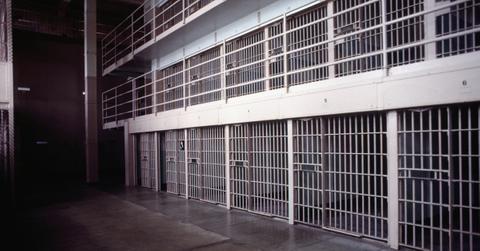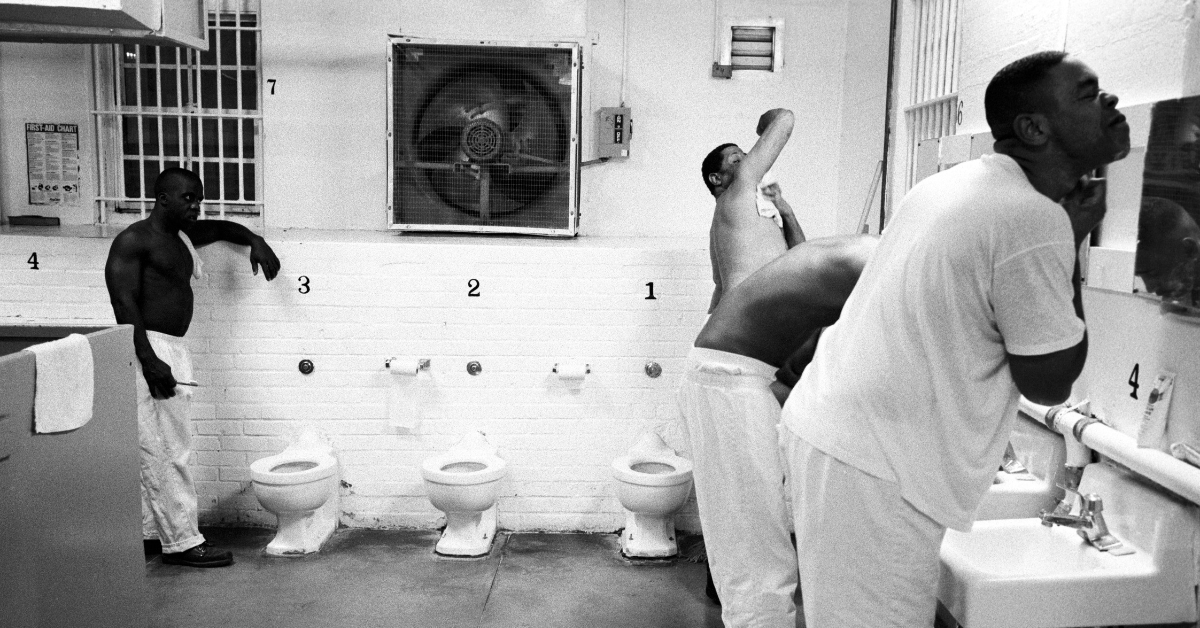Study Finds Water Polluted With "Forever Chemicals" in Almost 50% of U.S. Prisons
An estimated 47 percent of U.S. prisons are likely serving inmates PFAS-contaminated water.
Published April 10 2024, 3:10 p.m. ET

When it comes to concerns over the safety of U.S. water systems, there is one vulnerable population that may be finding it especially hard to access clean water: the incarcerated. A report is attempting to shed some light on the number of U.S. carceral facilities in areas where the water has high levels of PFAS — or per- and poly-fluoroalkyl substances, aka "forever chemicals" — and the numbers are actually pretty alarming.
According to the data, 47 percent of the facilities are impacted. The findings of this report not only paint a damning picture of what is going on behind the barred doors of our nation's prison-industrial complex, but of a greater crisis involving the drinking water each and every American has access to. Learn more about the report by reading on.

A study out of UCLA reports that PFAS are likely contaminating water in prisons across the U.S.
In March 2024, The American Journal of Public Health published a study, which sought to discover how many of the 6,188 prison facilities across the U.S. were located in areas with PFAS-contaminated watersheds. Of those facilities, 47 percent exist in areas that have a single presumptive source of PFAS, while 5 percent are located in areas where there is at least one known source of contamination.
Those figures represent nearly a million people who are trapped with a water supply containing PFAS, of which exposure to may cause various health complications.
“If you think of the incarcerated population as a city spread out over this vast archipelago of carceral facilities, it would be the fifth largest city in the country, with potentially very high levels of toxicants in its water and no ability to mitigate exposure,” senior author and UCLA professor Nicholas Shapiro said in a UCLA Newsroom release.
These findings point to an even larger problem. In a 2023 study from the U.S. Geological Survey (USGS), it was reported that nearly 45 percent of the country's tap water has been contaminated by PFAS. The USGS tested hundreds of public and private wells during this study, finding that by and large, nearly half of all water contained traces of forever chemicals.
Water contamination in areas where incarcerated people have no access to clean water is a matter of climate justice.
In 2023, Pew Charitable Trusts stated that despite Black individuals making up just 13 percent of the U.S. population, almost half of the people in state prisons (facilities at non-federal levels) are Black. Because of this, Black people are more likely to be impacted by the disparities taking place in the county's prison systems.
Our country's criminal justice system discriminates against Black people, meaning that Black individuals are more likely to spend time behind bars, as well as be handed down longer sentences than white individuals.
With PFAS being associated with increased risks of health concerns that range from increased cholesterol levels to cancer, it's alarming to consider that our government is putting marginalized populations in a position where their only choices are to use contaminated water, or go without.